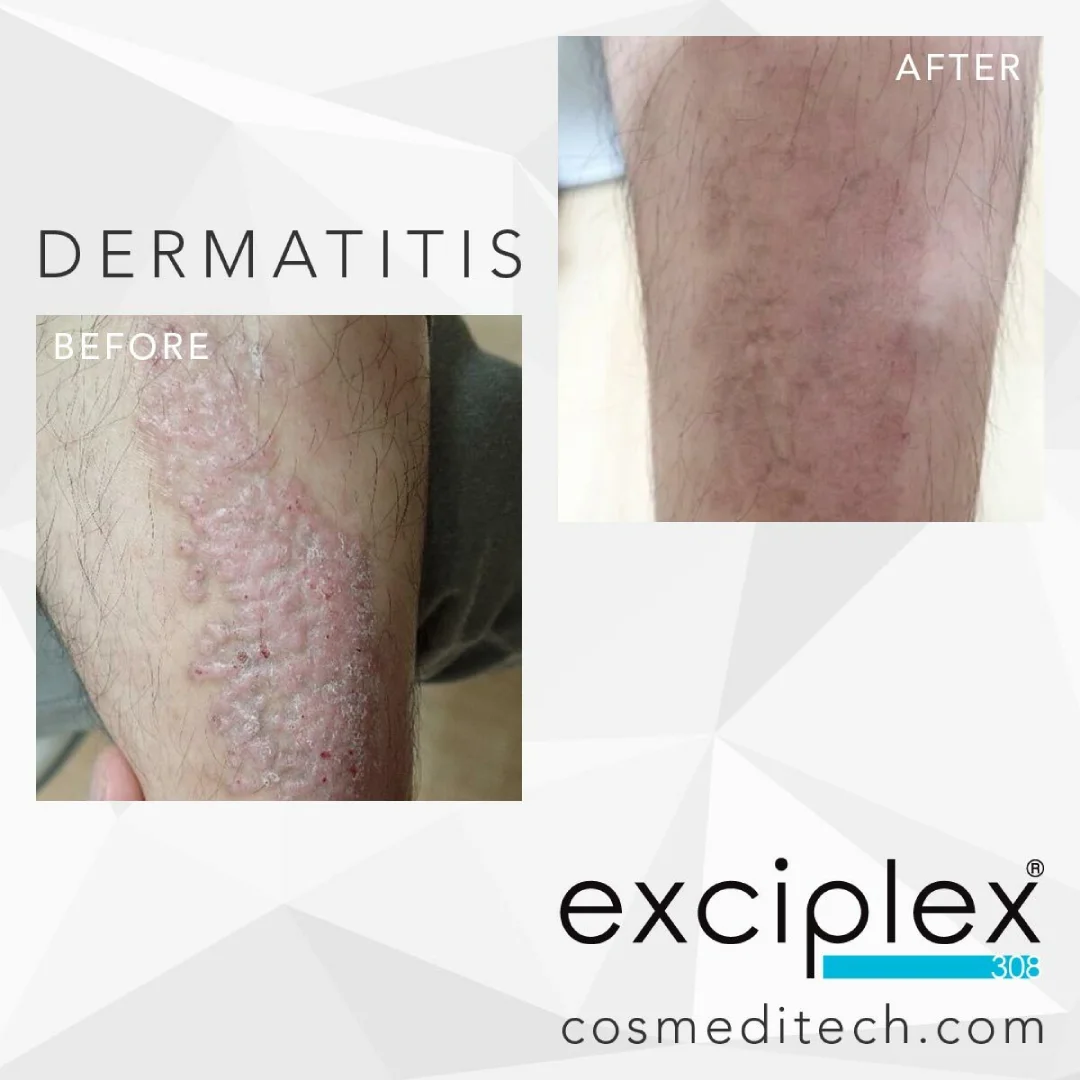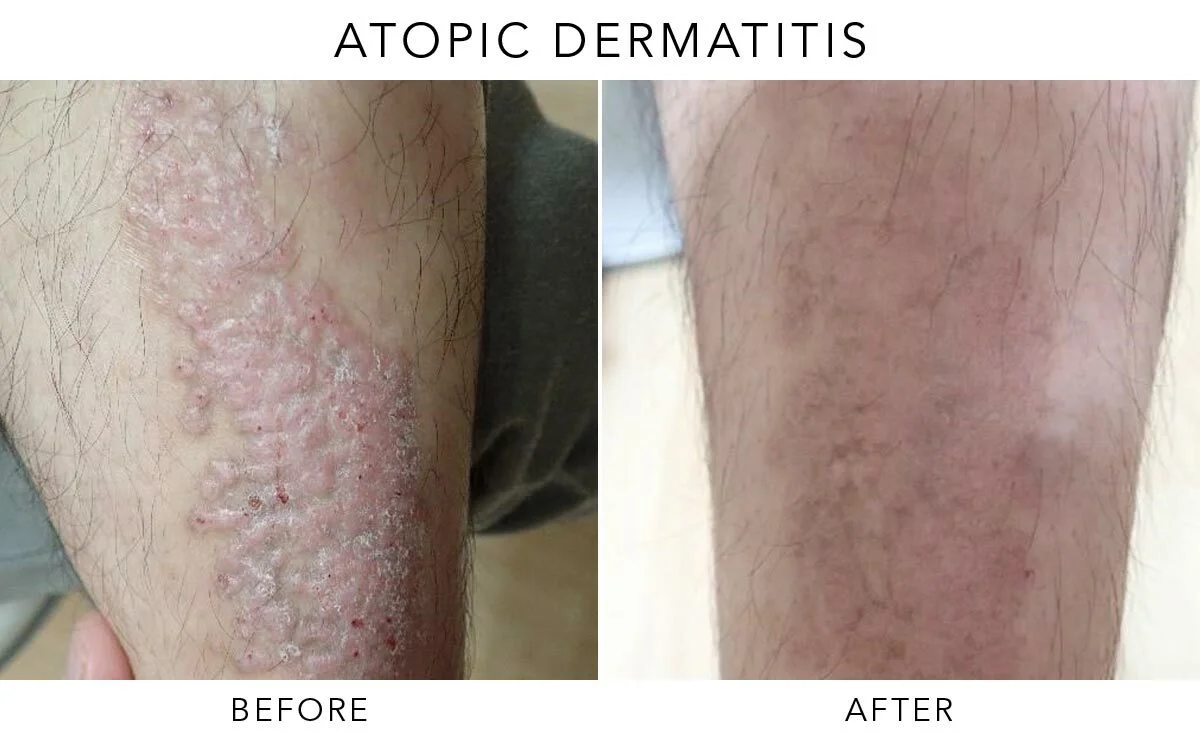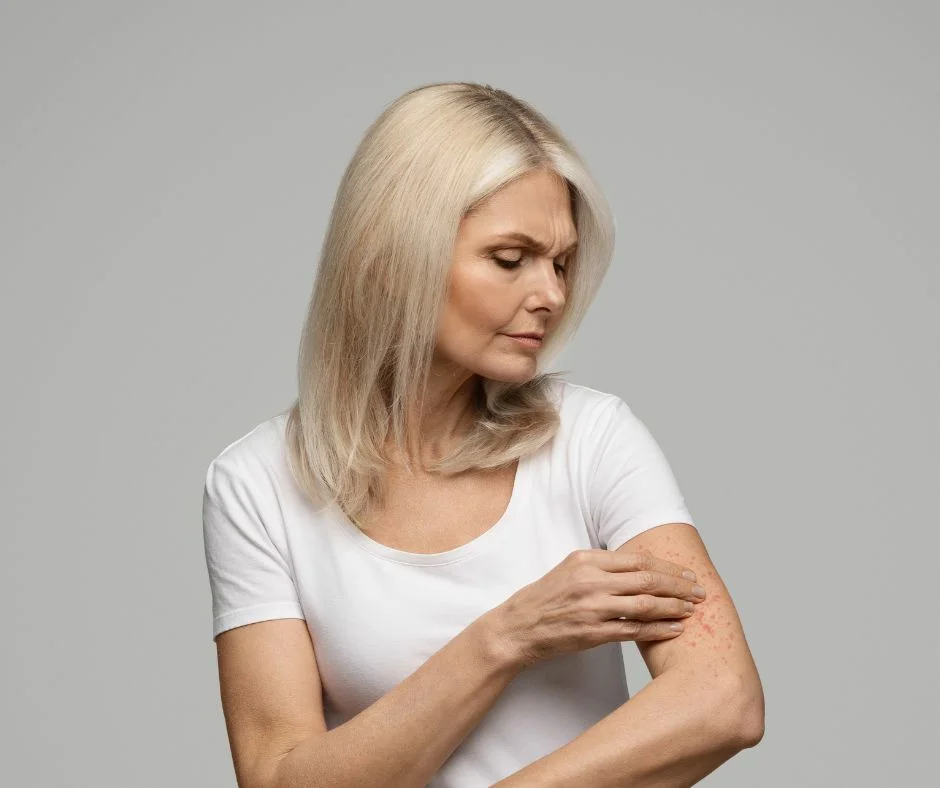
Treating Eczema and Atopic Dermatitis
Atopic dermatitis is an immune-based chronic condition where a weakened skin barrier results in recurring bouts of inflammation.
The condition, also known as eczema, is marked by patches of dry, itchy, flaky skin caused when the immune system overresponds to agents that have passed through the skin’s weakened layers. These are known as atopic dermatitis flare-ups.
Atopic dermatitis is considered a common skin condition, affecting nearly 1 out of every 10 children and one out of every twenty adults. While there is no cure, atopic dermatitis treatments have made considerable headways to provide patients with faster symptom relief, remission of uncomfortable patches, and more targeted ongoing flare-up management.
At Adonia Medical Clinic, Dr. Ejikeme and her team understand how disruptive eczema flare-ups are. Whether patients experience atopic dermatitis on the neck, on the scalp, on limbs, or simply want a more comprehensive lifestyle approach to help minimise future flare-ups, Adonia is ready with truly personalised medical care, all within wider Central London, Maida Vale, and Hampstead areas.
Signs and Symptoms of Atopic Dermatitis
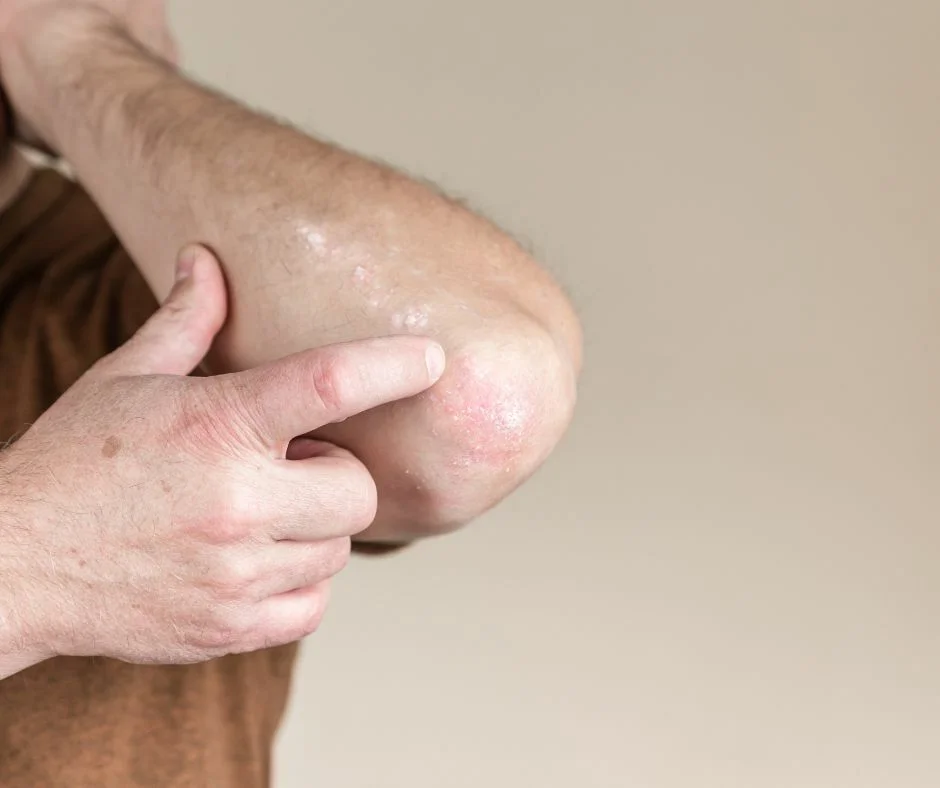
The most common symptoms of atopic dermatitis often appear as patches of dry, itchy skin, especially in areas prone to contact friction or flexion, such as the hands, knees, elbows, eyelids, neck, and armpits.
Unlike temporary rashes, eczema symptoms persist and can worsen over time, requiring specific dermatological care to diagnose and manage.
Key symptoms of atopic dermatitis include:
- Dry, scaly patches of skin, especially on the hands, feet, elbows, and knees
- Severe, ongoing itchiness, often worsening at night
- Swollen or inflamed skin which can be tender on contact.
- Skin discolouration around the inflamed patches, including brown, grey, or purplish patches
- Cracked, leathery feeling skin regardless of moisturising
- Small, raised, itchy bumps, sometimes containing fluid
- Recurring flare-ups in the same part(s) of the body
Causes of Eczema
Researchers currently do not know the cause of atopic dermatitis or eczema. It is thought that like many other skin conditions and immune disorders, a combination of factors is at play triggering development. Each of these triggers should be incorporated into a patient’s ongoing approach to atopic dermatitis treatment and care.
Exciplex® Light-Based Therapy
Exciplex® is a light light-based therapy, or phototherapy, and minimally invasive treatment option that utilises UVB light to reduce inflammation and bacterial buildup on and beneath the skin. Exciplex® is especially great for cases of severe atopic dermatitis, as it addresses both the immune system’s overactivity as well as skin cosmetic improvements.
During a session, the Exciplex® handheld device delivers precise, monochromatic UVB light at specific 308nm pulses to areas currently or frequently affected by flare-ups. This unique, localised method means overall faster non-invasive treatments, with far fewer risks of side effects and research-backed session safety.
Exciplex® phototherapy is considered a leading treatment for managing atopic dermatitis flare-ups. It is safe for use across age groups and nearly every area of the body impacted by eczema, including more sensitive treatment areas like atopic dermatitis of the scalp, and atopic dermatitis of the neck and armpits.
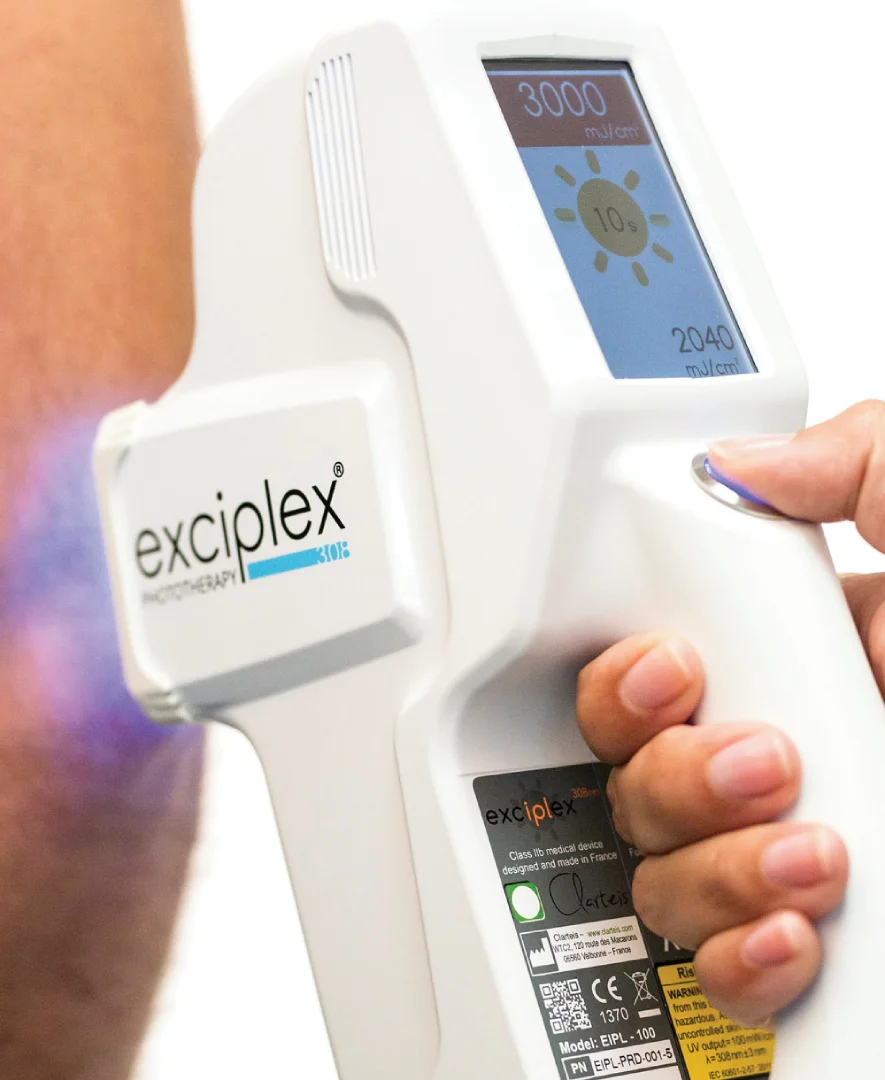
Why Choose Adonia? Atopic Dermatitis Treatment in Maida Vale, Hampstead, and Wider Central London
Adonia Medical Clinic brings a dedicated, holistic approach to managing eczema where patients receive short-term relief with long-term results.
Dr Ejikeme and her specialised staff understand this condition is more than physical discomfort — it’s about feeling like your full self again. It’s why Adonia Medical Clinic offers both Exciplex phototherapy in addition to topical eczema moisturisers and treatment creams — a dual approach that’s helped thousands.
What Is Atopic Dermatitis?
Atopic dermatitis, more commonly referred to as eczema, is a chronic skin condition affecting people of all ages characterised by rough, dry, itchy, and inflamed skin.
With atopic dermatitis, skin becomes red and inflamed due to a weakened skin barrier combined with overactive immune responses to a wide variety of environmental triggers. This combination results in “flare-ups,” periods in which symptoms become more intense, followed by periods of remission.
At its core, eczema means the skin barrier’s ability to retain moisture and keep out irritants and allergens is compromised, leading to recurring inflammation. While it is not classified as an autoimmune disorder, severe atopic dermatitis occurs because a patient’s immune cells are dysregulated, often losing the ability to deploy appropriate, measured immune reactions to external agents.
Often, the condition develops during childhood and even as early as infancy.
Before & After Atopic Dermatitis Treatment Results
get in touch today
Talk to us
When it comes to your appearance, our skin experts at our Central London clinic can help target a range of concerns. We’re experts at treating Black, Asian, Caucasian and mixed heritage skin with our scientifically-led treatments, creating results that enhance and empower. Contact us today to find out how we can help.
Call: 020.3875.7399 Email: info@adoniamedicalclinic.co.uk Book Online
Your skincare suggestions…
Browse below for our personalised, handpicked skincare choices that work for your unique needs.

 020.3875.7399
020.3875.7399


